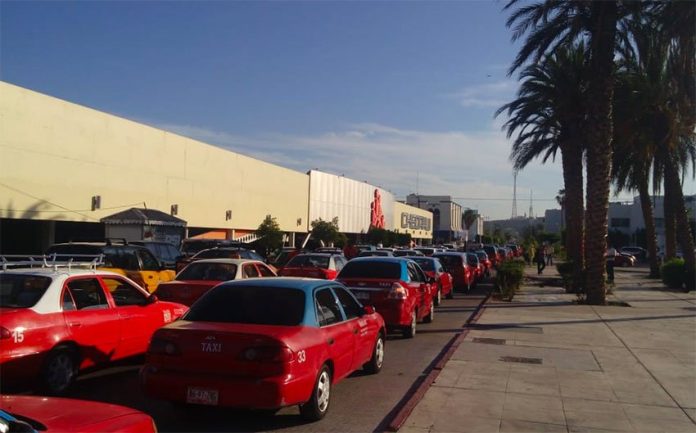The lucrative tourist market is at the heart of a dispute between taxi drivers and Uber chauffeurs in Baja California Sur as the state Congress considers the approval of a new transportation law.
Taxi drivers in the tourism-oriented state have protested against the legislative proposal that seeks to regulate Uber and other ride-sharing services and allow them to operate legally.
Uber already operates without formal authorization in Baja California Sur but taxi drivers fear that if it is given the go ahead to do so legally, it will further diminish their share of the tourism transportation market, which is worth tens of millions of dollars annually.
Governor Carlos Mendoza Davis yesterday urged lawmakers to pass the new law, which was presented to Congress more than seven months ago.
“We have no more time to lose, because in the absence of this law, confrontations that affect all of us have been provoked,” he wrote on Twitter.
“Our state lives from tourism. I call on the Congress of Baja California Sur . . . to approve the law as soon as possible.”
While the governor pressures Congress to pass the law, taxi drivers in destinations such as La Paz and Los Cabos vow to do all they can to stop it.
“It’s very clear that to provide a [transportation] service, a concession, a license and a series of [other] things are needed . . . The private service doesn’t have those things, it’s illegal. We’re going to fight because the wealth of each one of us [is at stake],” said Pedro Enrique López, leader of the taxi drivers’ association in La Paz.
However, it is not just taxi drivers who are prepared to fight for their livelihoods.
Hundreds of Uber drivers and their supporters protested in Cabo San Lucas Sunday to demand authorities take action to stop the acts of aggression against people who only want to earn an honest living.
Other transportation industry stakeholders argue that approval of the new law would help to put an end to corruption in the taxi industry.
“A large number of [taxi] concessions are in the hands of politicians. The consolation prize for every previous state administration that finished up . . . was transportation concessions,” said Celestino Atienzo, representative of a tourism transportation association in Los Cabos.
Jesús Robles, director of the state transportation department, agreed with that assessment and explained that concessions can be leased for as much as US $100,000.
If Uber is given the green light, more protests are likely to follow, warned Ramón Ceseña, municipal director of transportation in Los Cabos, a taxi driver and allegedly an instigator of operations against Uber drivers.
“Deregulating transportation would be dangerous due to the social problems that could arise. There could be protests,” he said.
Consumers might be tempted to protest as well. The newspaper Milenio reported that the fare from the airport to Cabo San Lucas is 900 pesos in a taxi. The Uber fare is 486 pesos.
Source: Milenio (sp)
